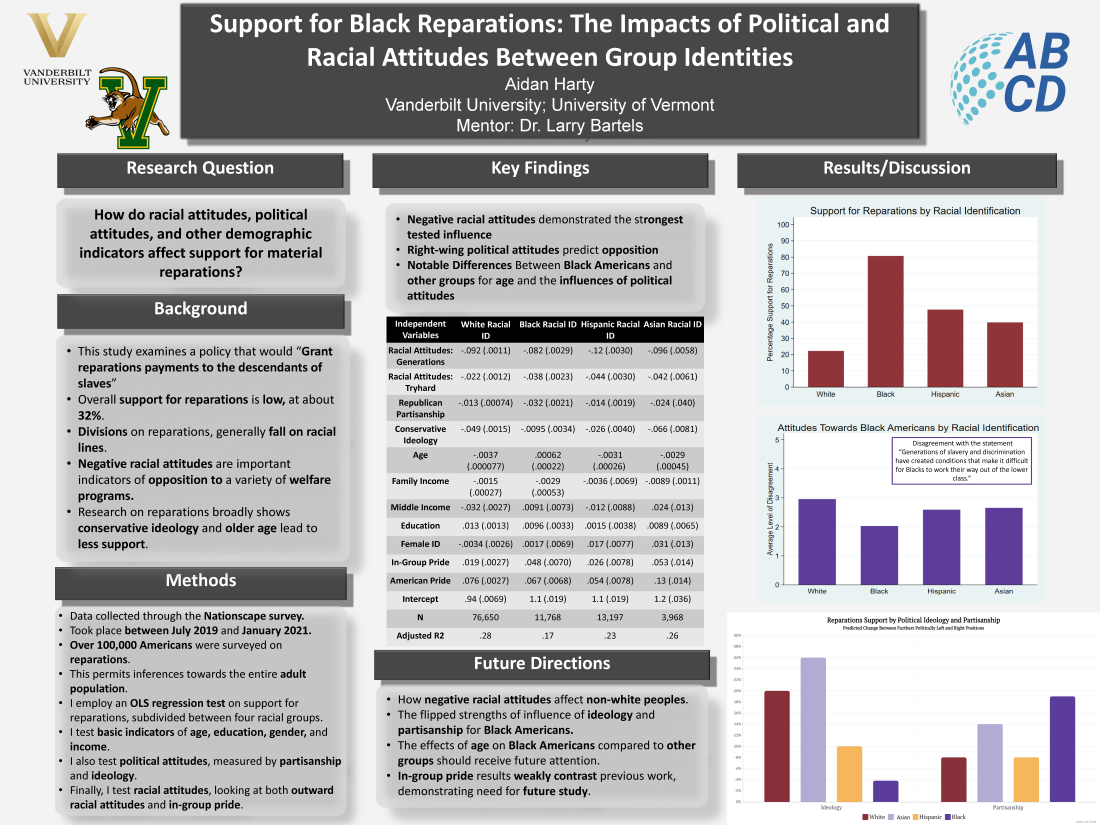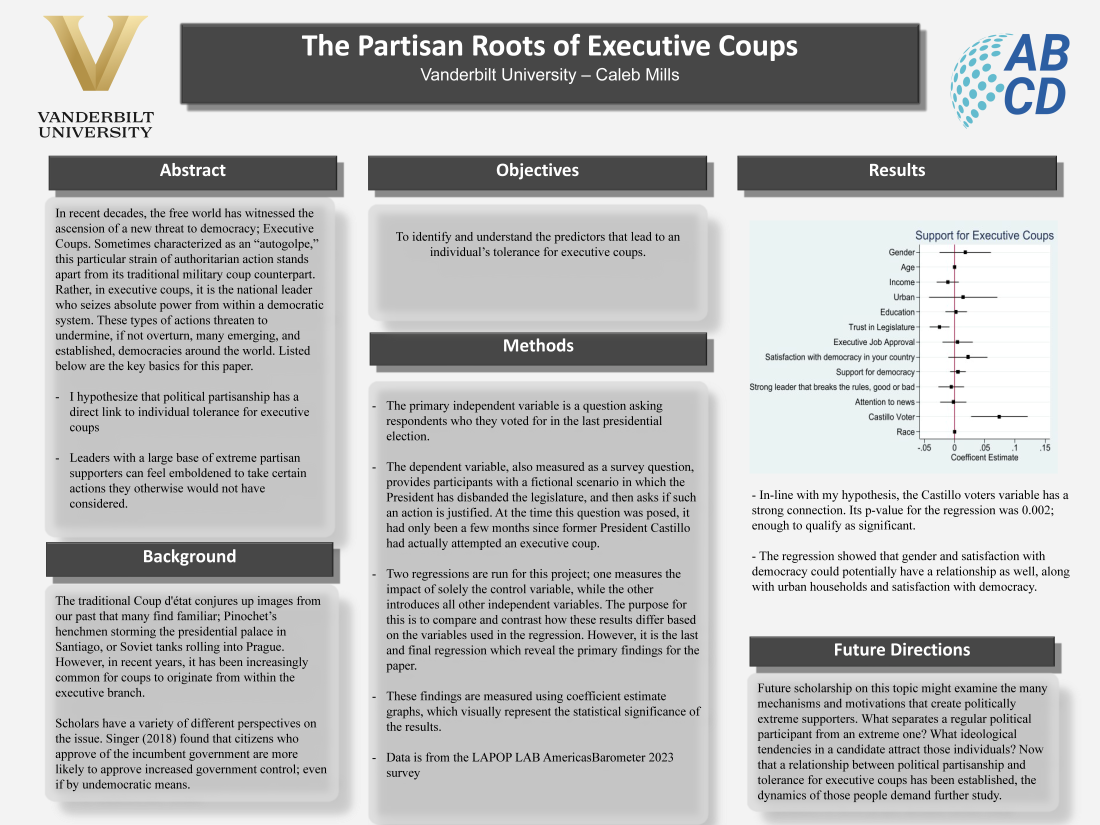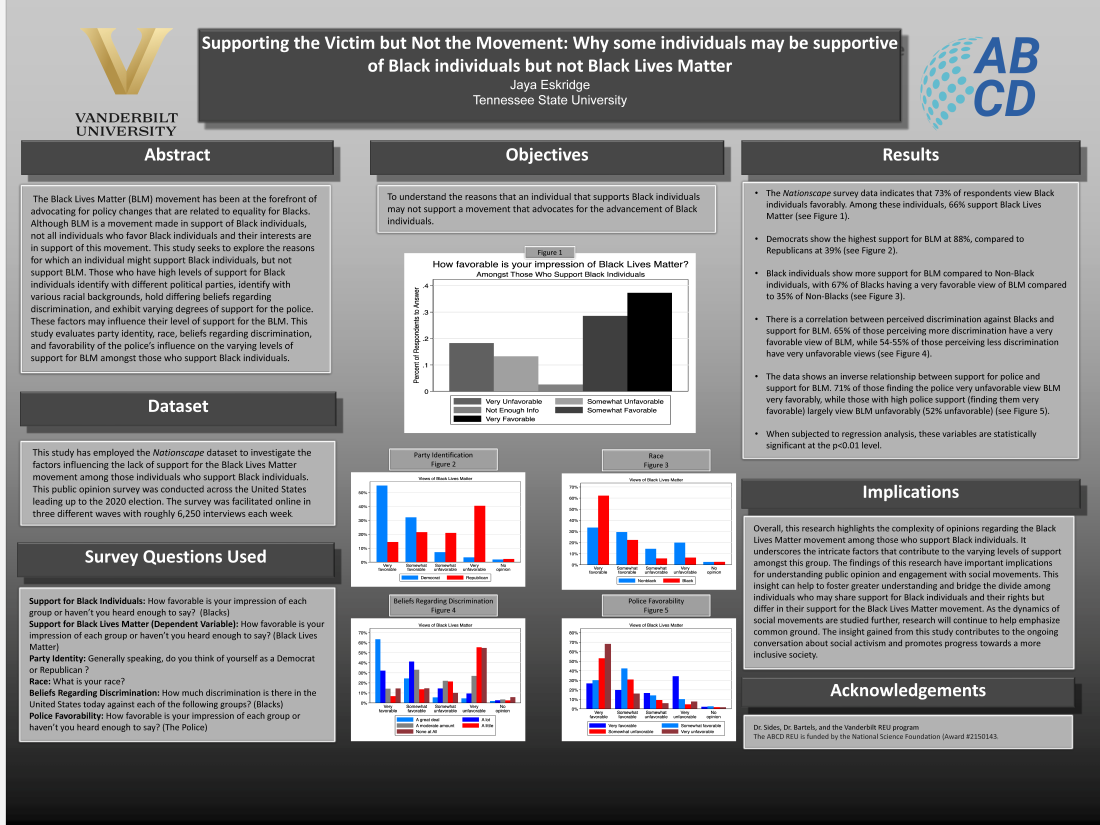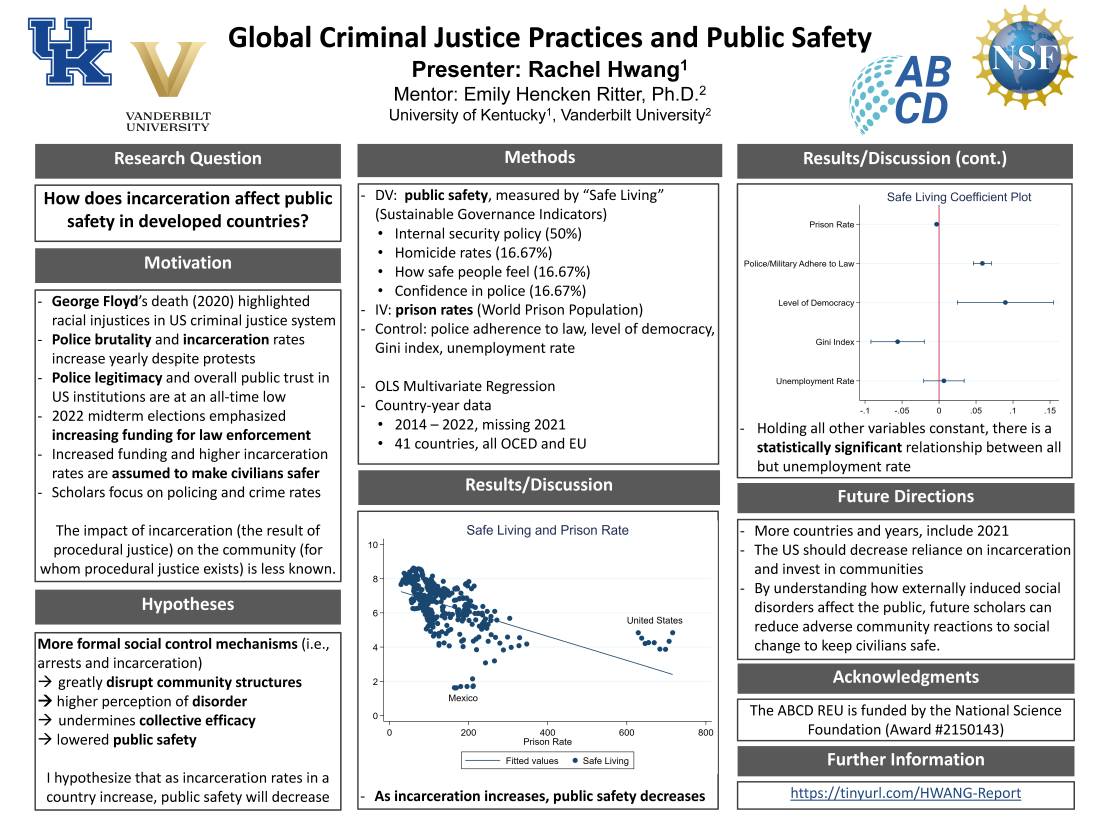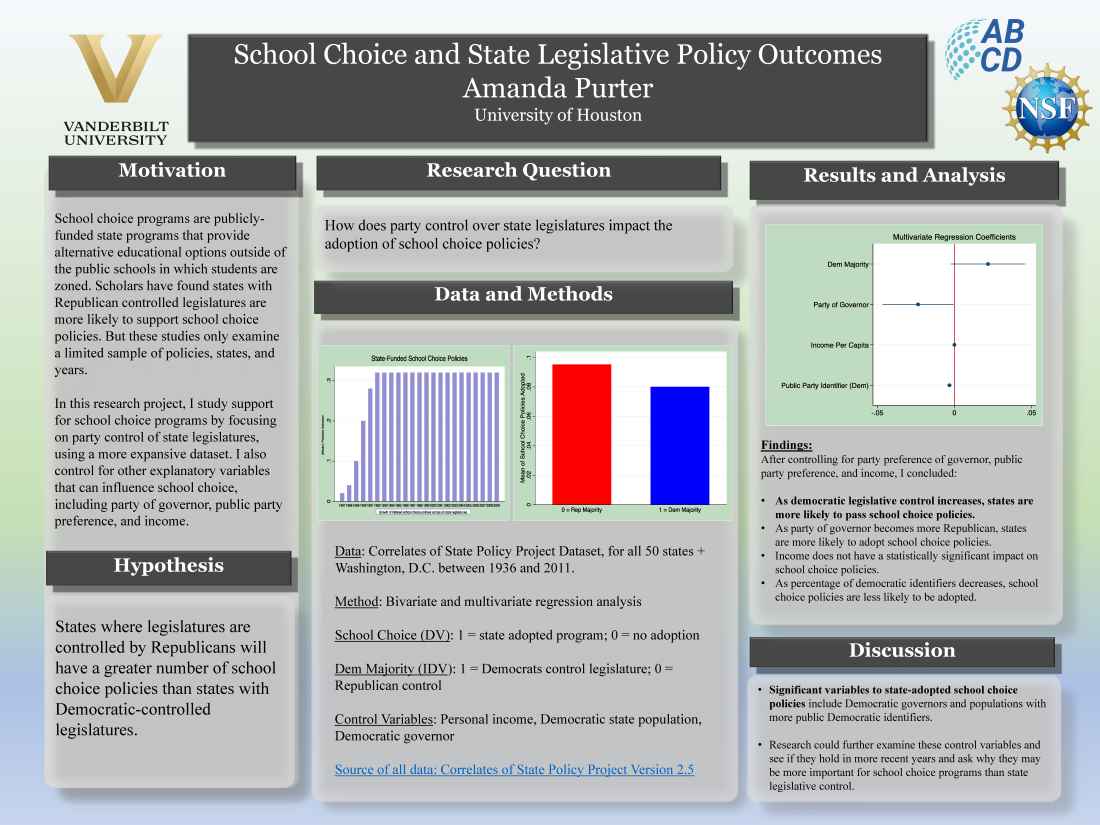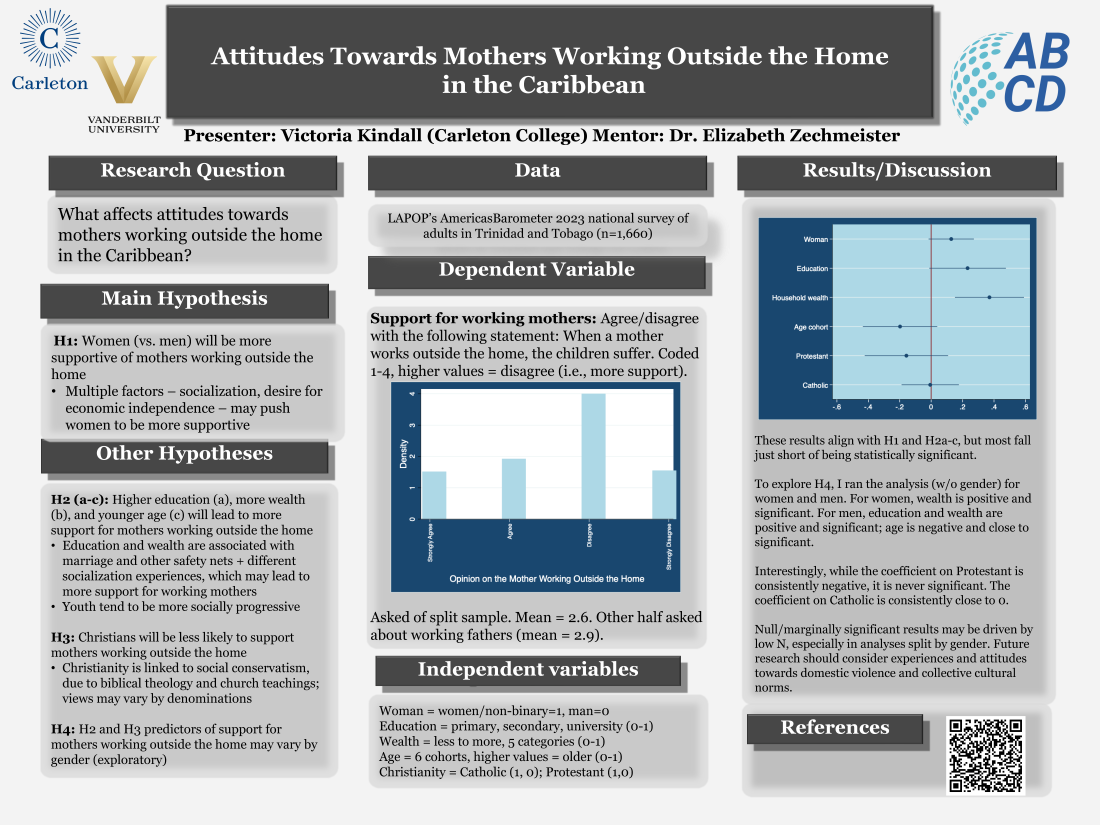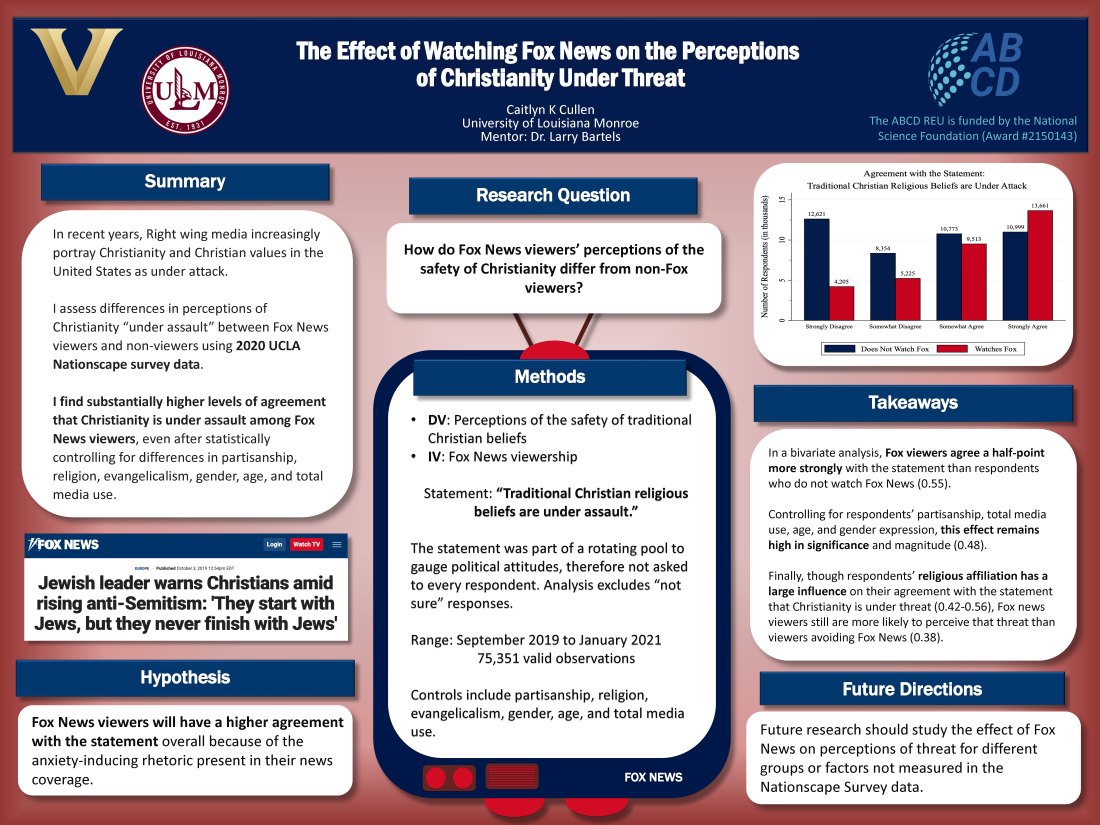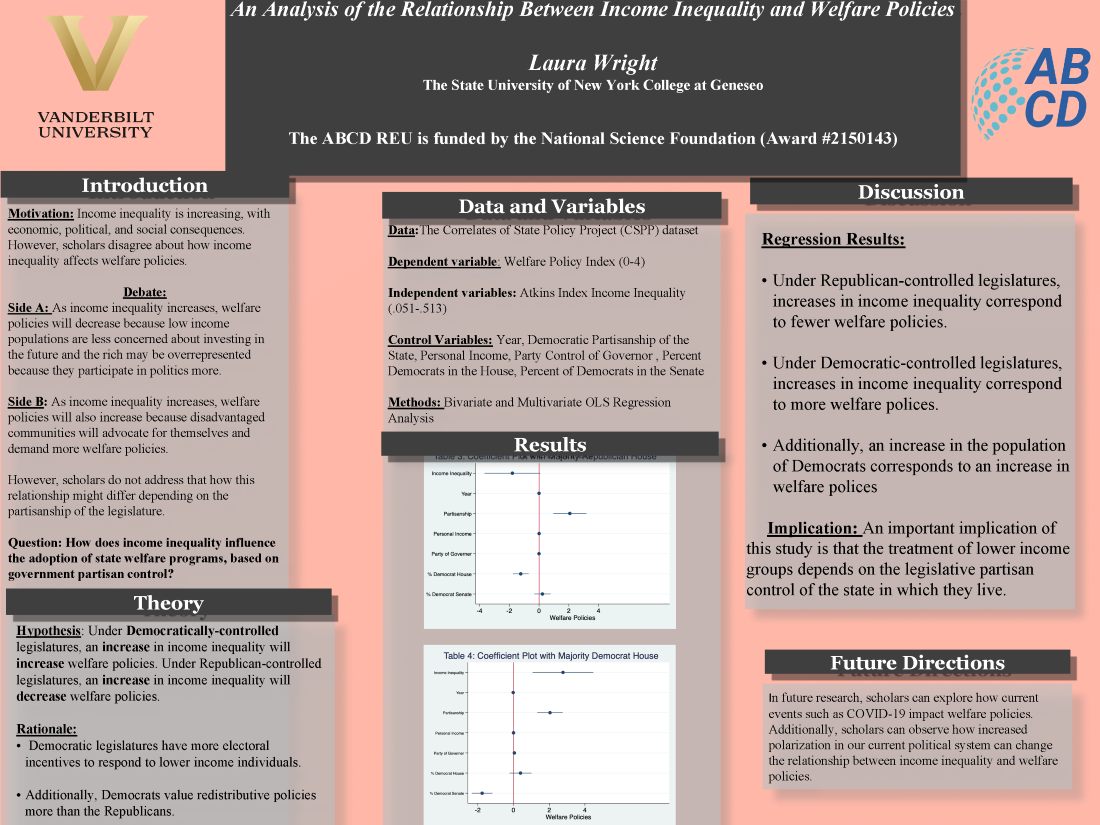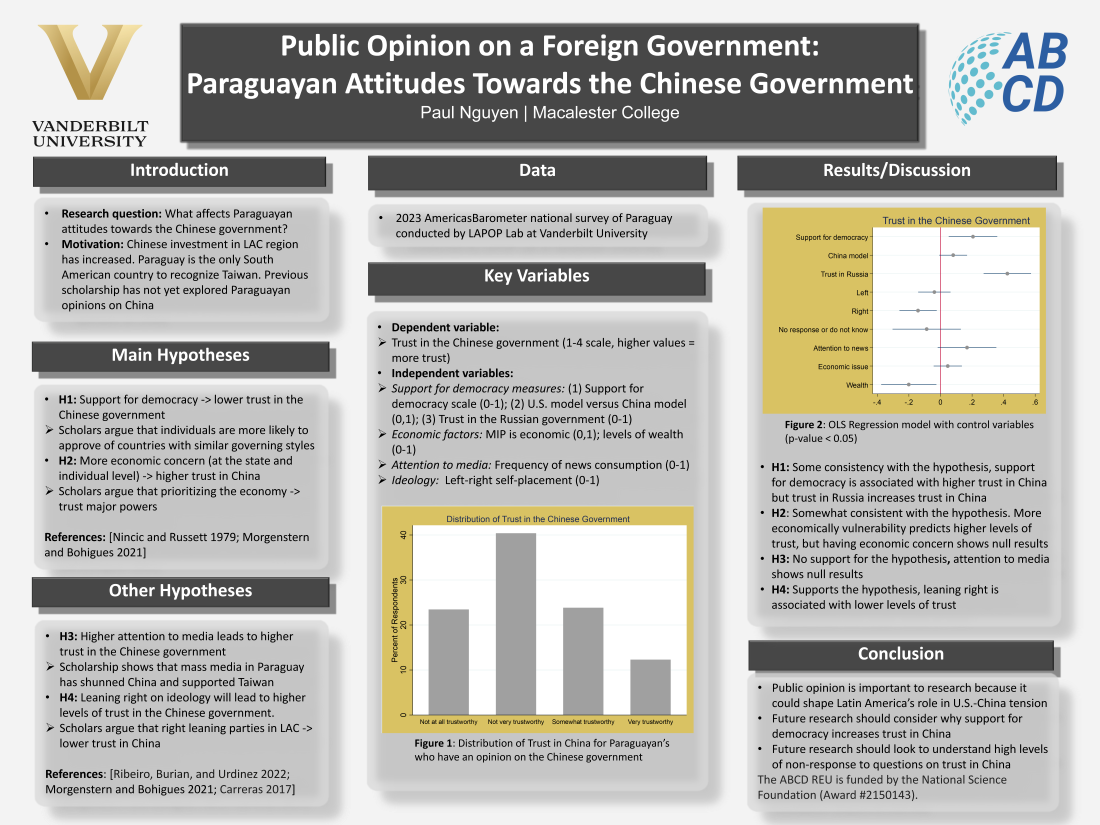Research Areas
Based on their interests, REU students will join one of four lines of intellectual inquiry. Students will be matched to faculty who will provide mentorship and guidance on relevant datasets for the student’s research project.
Conflict and Cooperation
Affiliated center: ROCCA
Affiliated faculty: Dorff, Ritter
Effective democracy requires non-governmental entities to hold governments accountable for overreach or abuse of power; to leave it to the government alone is to invite corruption. This principle is the foundation of non-violent and violent conflict around the world: people protest and rebel against abusive leaders and leaders repress to control those activities. Participants may study the institutions and tactics through which states use political violence to control public accountability and the ways publics learn about abuses and hold leaders responsible through investigation, peaceful protest, and violence. Mentors will make available original datasets on bureaucratic human rights abuses, race riots in US history, and violent attacks on journalists, as well as the Human Rights Data Project, Political Terror Scale, and Social Conflict Analysis Database.
Effective Institutions in the United States
Affiliated center: CSDI
Affiliated faculty: Bartels, Clinton, Lewis, Sides, and Thrower
Responsive, responsible, and representative governance is at the heart of a healthy democracy. As such, questions surrounding the causes and consequences of effective institutions are a central subject of U.S. political discourse and scholarly inquiry. Examples include: What makes some individual legislators, presidents, and bureaucrats more effective than others? What are the consequences of institutional effectiveness and capacity for policymaking? How responsive are the U.S. branches of government to public opinion, interest groups, and societal needs? How might partisan and electoral politics affect these relationships? To answer these and other questions, students can draw upon a variety of datasets, including: the Comparative Agendas Project, the American Presidency Project, the Center for Effective Lawmaking Dataset, and the Survey on the Future of Government Services.
The Public and Electoral Accountability
Affiliated center: RIPS
Affiliated faculty: Kam, Sides
What is the role of the public in designing and maintaining effective democratic institutions? How does public opinion facilitate and constrain democratic practices, including the need for robust civil liberties and rights, electoral institutions, and civil society organizations? Fundamentally, can the public serve as an effective check on elected leaders — especially in an era of strong partisanship? Answers to these questions have been central to political behavior research and are even more pressing given the ongoing challenges to American democracy. REU students can draw on a range of datasets to investigate these questions including: the 2011-2020 VOTER Survey panel, the 500,000-person sample of the 2019-20 Nationscape project, the American National Elections Study, the Cooperative Election Study, and several others.
Regime Legitimacy in Latin America
Affiliated center: LAPOP
Affiliated faculty: Hiskey, Lupu, Zechmeister
A longstanding question in research on regime legitimacy concerns the causes of instability and individuals’ decisions to “exit”. LAPOP’s AmericasBarometer project has contributed to research on the factors that make individuals more likely to report lower levels of regime legitimacy and higher intentions to emigrate. Some of this work focuses on factors related to economic opportunities and fears of violence. Less well-understood is the role of accountable, transparent, and effective institutions in providing citizens with pathways to improve conditions at home. A student project could advance knowledge in this area by using AmericasBarometer data to examine connections between experiences with government performance, on the one hand, and perceptions of political legitimacy, on the other hand; as another example, a student could dive into predictors of intentions to emigrate.
